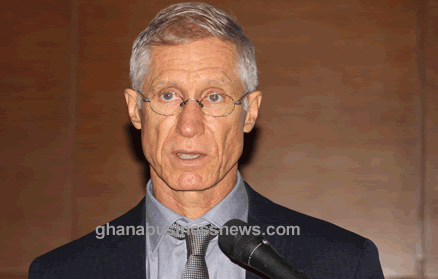Reconstruction costs after Accra floods estimated at $105m – World Bank

On June 3, 2015, a flood in Accra followed by a filling station gas explosion killed 150 people. The disaster also affected more than 50,000 residents in Accra.
The cost of the damage was estimated at GH¢242 million or $55 million.
A needs assessment carried out soon after the disaster, identified $105 million reconstruction needs in the transport, housing and water sectors alone, the World Bank which supported the Ghana government to carry out the assessment has said.
Speaking on behalf of the World Bank, Ghana Country Director, Henry Kerali at the launch of a National Report: “Strengthening Urban Resilience in Greater Accra Metropolitan Area,” and Dissemination Workshop, Ivo Imparato, a Programme Leader of the Bank, noted that, that reflects “just how quickly disasters can take away development gains, in addition to their human toll,” adding, “ This coming Saturday will mark the second anniversary of the disaster of June 3, 2015.”
Imparato, however, acknowledged that events like this are not only affecting Accra.
“A recent World Bank report reveals that Global Average Annual Losses from disasters in the built environment are now estimated at $314 billion and can increase to $415 billion by 2030,” he said.
According to him, this rise in disaster impacts is happening along with increased urbanization.
“As we all know, urbanization is one of the defining trends of this century. Today’s cities are home to more than half of the world’s population. Currently, cities are adding 1.4 million people per week and generating more than 80 per cent of global GDP.
Although it is the least urbanized continent today, Africa will soon surpass Asia as the fastest-urbanizing region, leading the world in urban growth in the near future,” he said.
The Greater Accra region is no exception, he said, noting that the capital of Ghana is currently estimated to be home to over four million people, and projected to house over 10 million by 2040.
“The region contributes 25 per cent of the nation’s GDP and is an economic hub in the West African regional corridor,” he adds.
He however, pointed out that– the underlying factor for cities to become engines of growth – do not take place automatically.
“How cities are planned, financed and managed have fundamental impacts on the outcome and performance of cities, as well as the well-being of their residents. Concentration of people and assets, along with rapid and mostly unplanned growth, expose urban areas to a complex range of shocks and stresses which put in jeopardy human wellbeing and hard-won development gains,” he said.
Imparato citing an example, said the risk of sea-level rise and subsidence in the 136 largest coastal cities could result in losses of $1 trillion or more per year by 2050. This situation is particularly critical for the Greater Accra Region, where 80 per cent of the 225 km-long shoreline is threatened by erosion, he said.
He indicated that more than 53 per cent of the urban population of Ghana lives in inner cities, informal settlements, and zongos – many of them in unwanted areas of the city that are more exposed to natural disasters while having less coping capacity.
“Given all these alarming figures it’s clear that ensuring well-planned and resilient cities is a priority in the development agenda,” he said.
Accra incidentally, is not new to flooding and natural disasters. The Daily Graphic newspaper published a profile of disasters in Accra which cited a spokesman for the Meteorological Services saying the heaviest rainfall ever recorded in the city fell in June 1959, when a volume of 7.56 inches was registered.
In his closing remarks, after the launch of the report, Henry Kerali said The World Bank is very much committed and will continue to provide the needed support.
“We need all hands on deck to push the resilience agenda forward through focusing on these four key recommendations as a starting point and building upon them. We look forward to a strong political commitment and effective collaboration with all key institutions and development partners to build the resilient Accra we envisage,” he said.
By Emmanuel K. Dogbevi
Copyright ©2017 by Creative Imaginations Publicity
All rights reserved. This news item or any portion thereof may not be reproduced or used in any manner whatsoever without the express written permission of the publisher except for the use of brief quotations in reviews.
